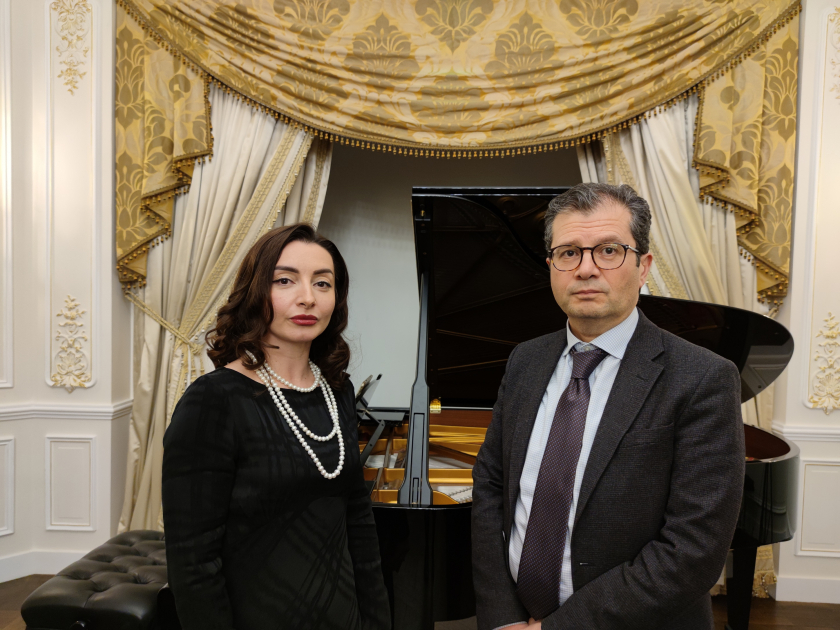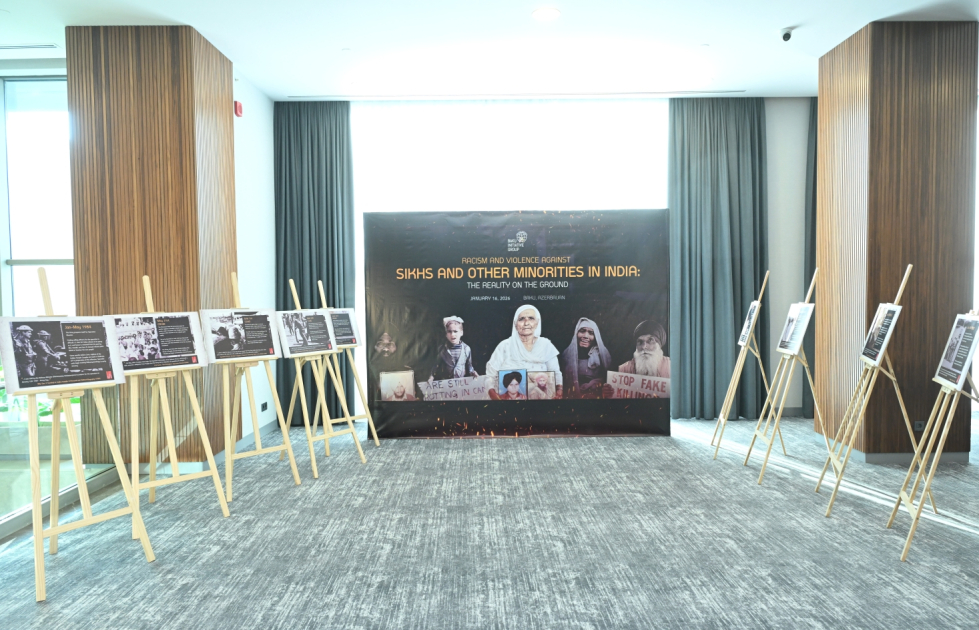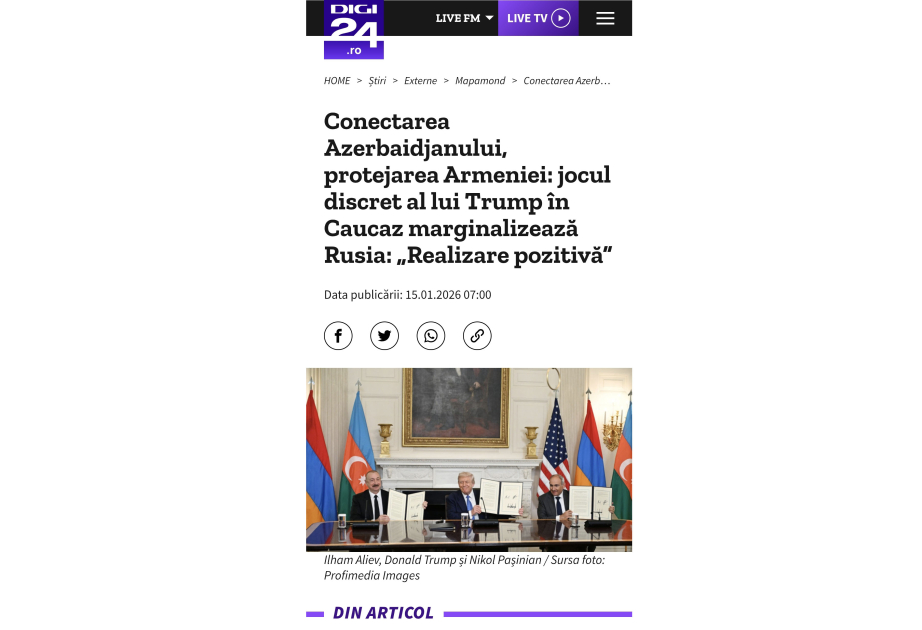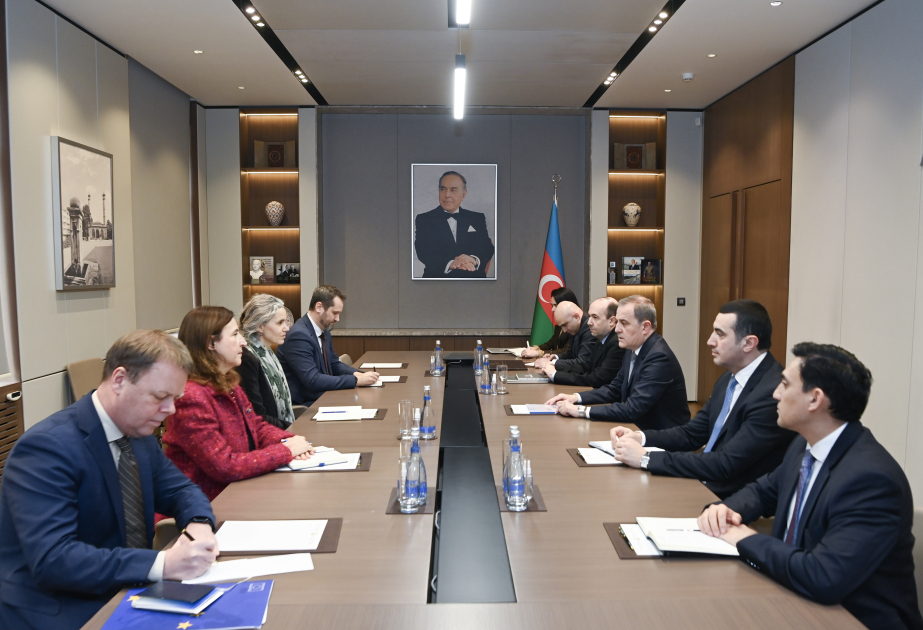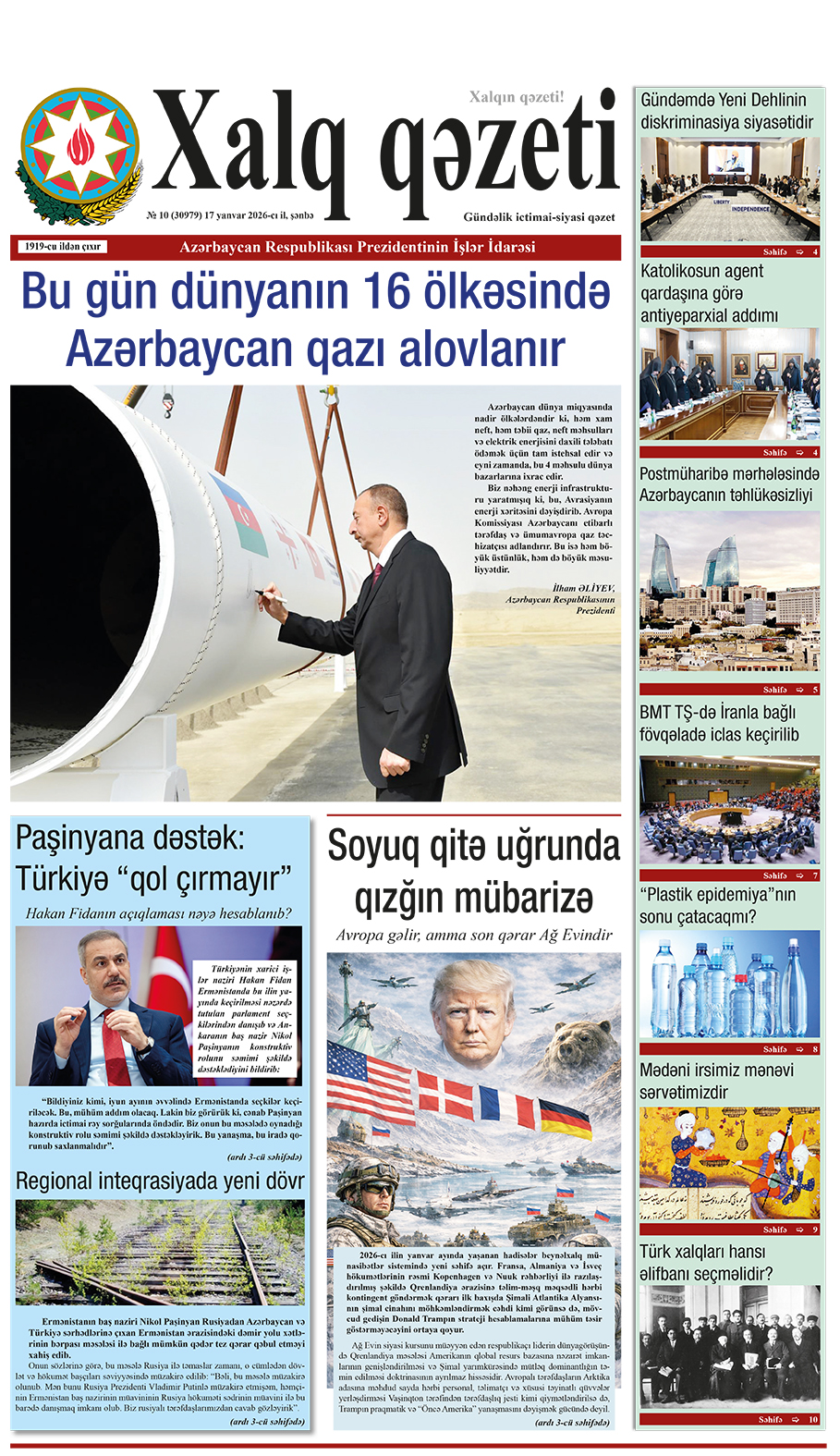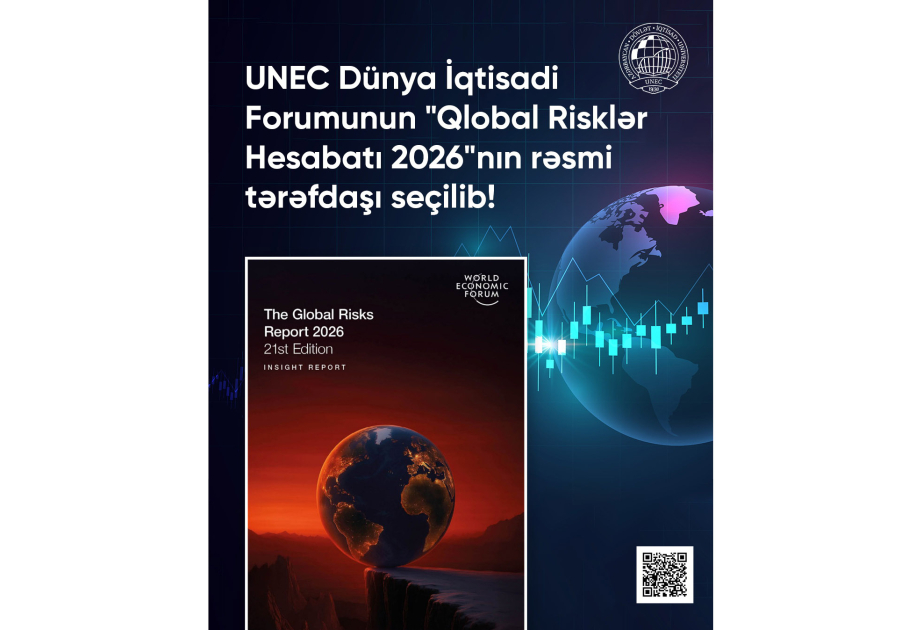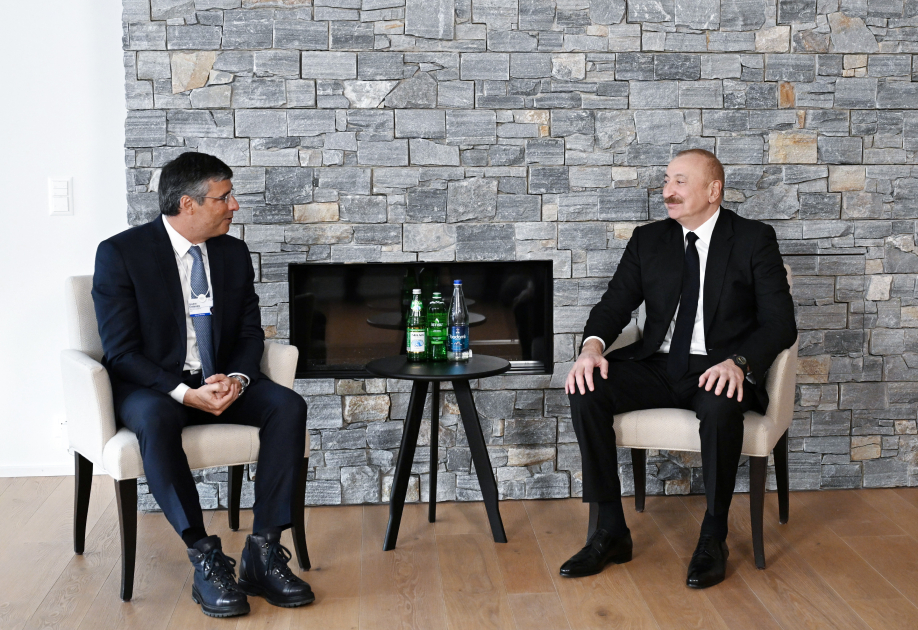The fact that Prime Minister of Armenia Nikol Pashinyan and President of Azerbaijan Ilham Aliyev were convened by Trump, President of the United States at the White House for an official signing of a memorandum of understanding of a document that commitments both countries to continue in their dialog, leading to a peaceful and complete resolution of all the outstanding issues is very positive, Paolo von Schirach, President Global Policy Institute and Professor of Political Science and International Relations at Bay Atlantic University in Washington DC U.S. told AZERTAC.
“I think both sides, Armenia and Azerbaijan, did so because both agree that the United States, as a guarantee, as a third party broker who brought the two sides together, it reinforces the credibility of the whole enterprise. Good hopes regarding additional development in the region that can be brought about by American investments, particularly when it comes to critical infrastructure aimed at making the Caucasus as a hub for connections between Europe and Central Asia, Europe and the Middle East, the Middle East and Central Asia, and so on,” the U.S. expert noted.
“So all this is very positive. I think that it's prestigious for Trump, the fact that he has proven to be an honest broker between two sides that have been at war for so many decades, as you know very well. Now, there's no more war. The territorial issues have been resolved, but there's still a lot of work to do. I think that everybody should feel satisfied that this was a successful meeting. Last but not least, Trump, President of the United States, he has said many times in his first term and in his second term that he doesn't like war, he doesn't like military interventions, he doesn't like fighting anywhere, and he wants peace. He's tried to make peace between Israel and the Palestinians. Well, that's an ongoing process. He tried to make peace between Ukraine and Russia. To have the President of the United States directly engaged up front as a co-signatory of this agreement should give both sides a certain sense of reassurance as they engage in continuing this process,” Paolo von Schirach added.
Malahat Najafova
Special correspondent


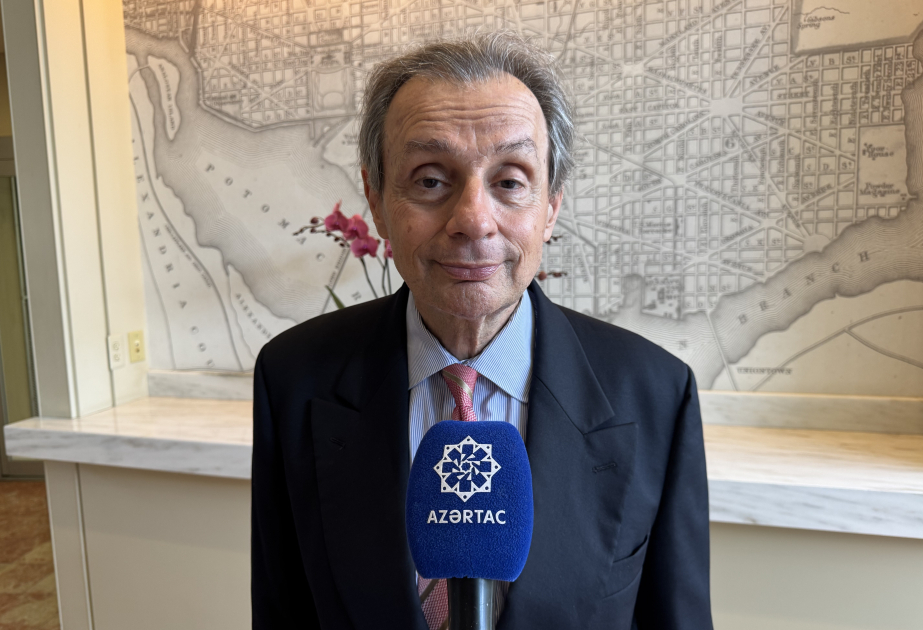
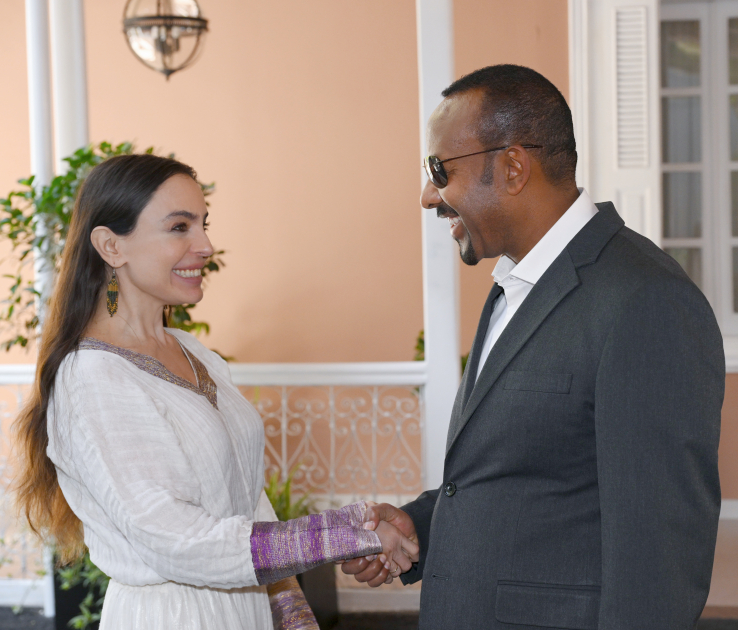
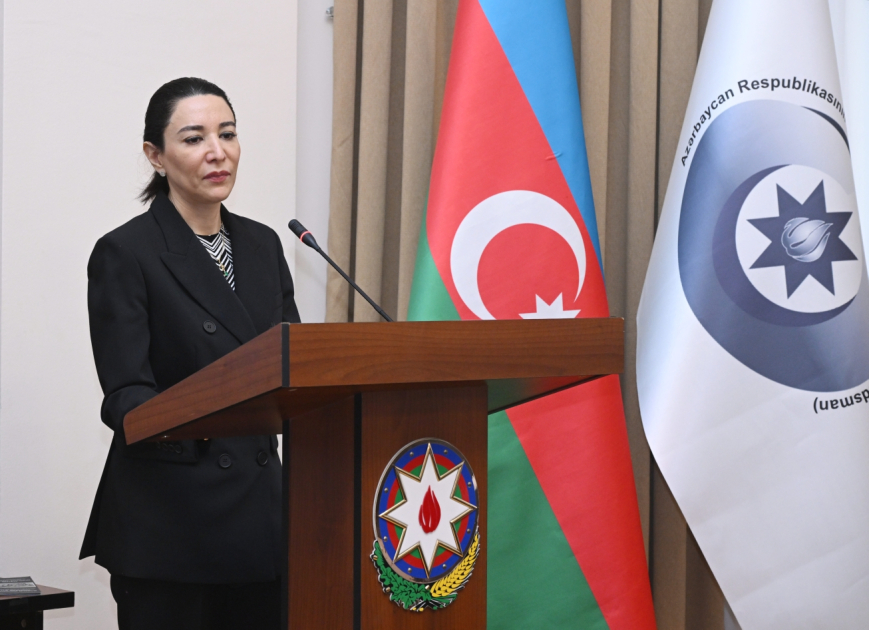
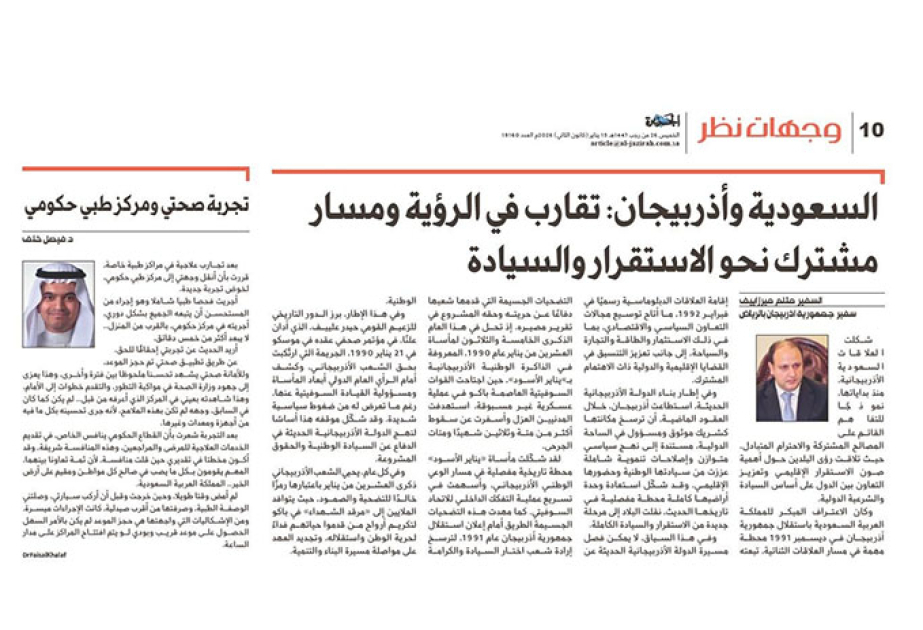
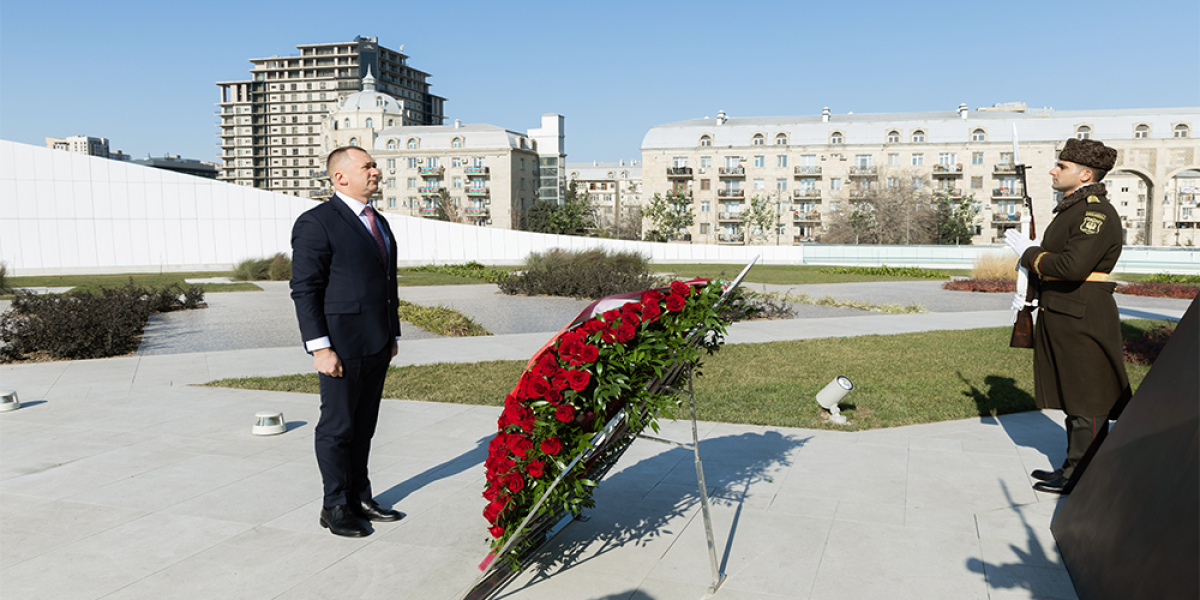
.jpg)
